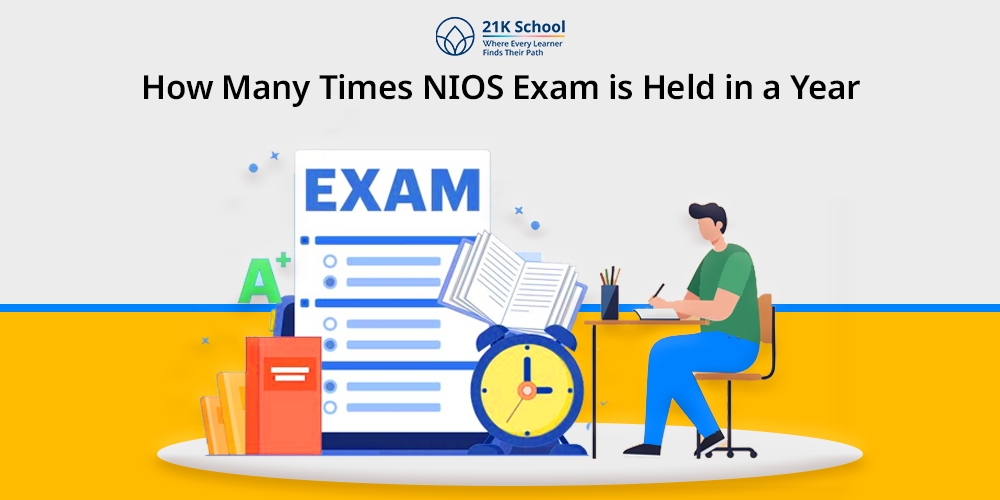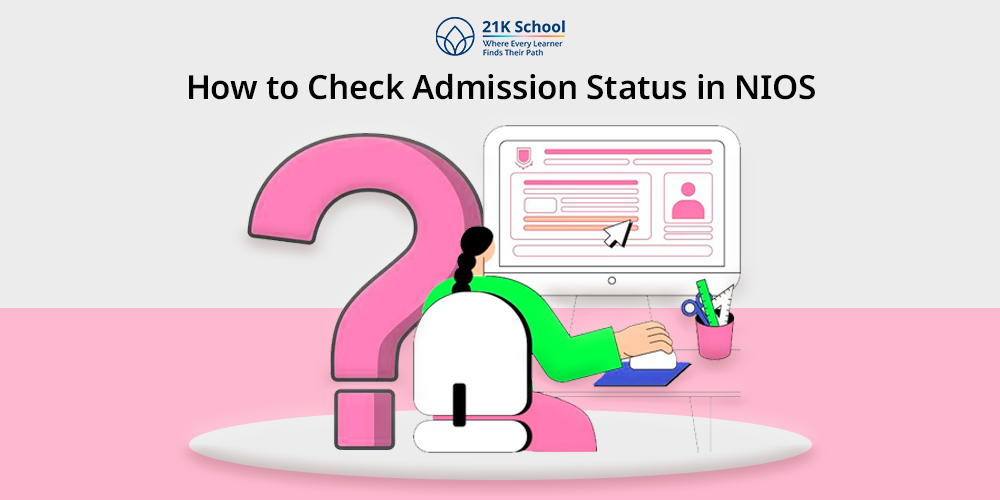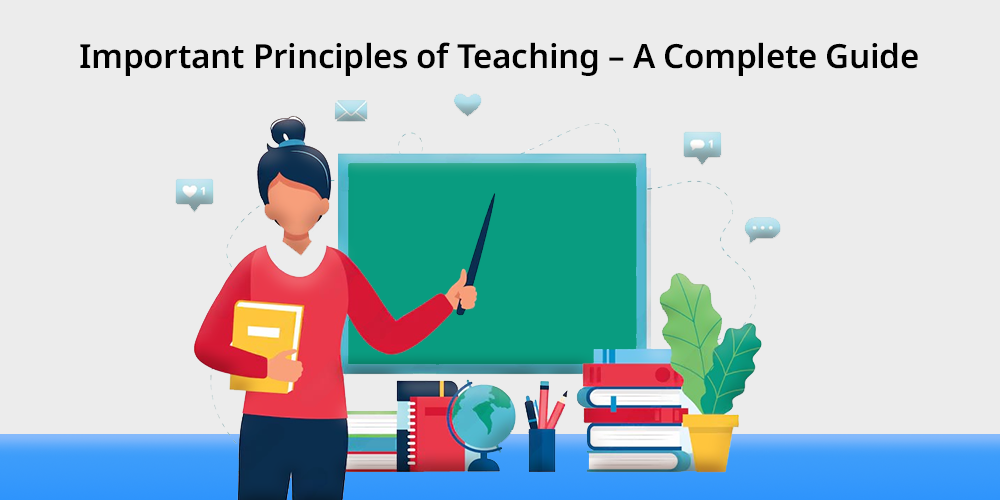
Teachers are the torch bearers of education that lights up the path for students to explore the wonderful journey of learning. What is it that makes teachers a favourite amongst students?
It is some principles of a teacher that ushers students towards success and help recognise their unique talents.
This article will list down the 7 principles of a teacher that makes them stand out from the crowd.
But first, let’s understand about….
Table of Contents
- Teaching Principles
- What are the 7 Principles of Teaching?
- Principle 1: Creating Connections between Students and Faculty
- Principle 2: Fostering Teamwork
- Principle 3: Boosting Active Learning Process
- Principle 4: Prompt Review
- Principle 5: Managing Time Well
- Principle 6: Boosting Student Morale
- Principle 7: Introducing Varied Learning Styles and Respecting Diverse Talents
- Conclusion
Teaching Principles
Teaching principles are a set of guidelines that each teacher must follow to improve the kind of experiences that a student is having in class.
The principles are some of the ways to make the most out of the classroom by making each participant learn better.
What are the 7 Principles of Teaching?
The 7 principles of teaching emerged after many years of research on teaching and education that had its first mention in the book titled “Seven Principles of Good Practice in Undergraduate Education”.
This book was written back in the 1980s by Arthur W. Chickering and Zelda F. Gamson, that offered certain guided methods to follow for teachers and defined what it means to have a good education.
Principle 1: Creating Connections between Students and Faculty
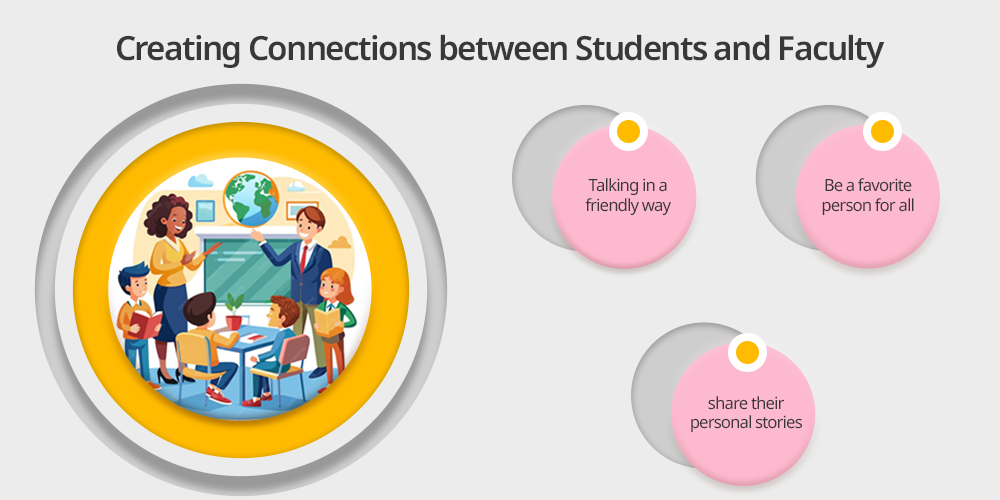
A teacher should not simply aim to be perfect but also a favorite person for all so that it becomes quite easy to take counsel whenever necessary.
Talking in a friendly way is the key to have students narrate their stories and also show their problems.
Students display no sign of eagerness in reaching out when the teacher is not that approachable.
Teachers can also share their personal stories so that the connection happens both ways instead of getting reduced to a one way sharing.
If professors have a natural instinct to show more empathy that is guided by good practices, the entire classroom will equally dive into them.
Principle 2: Fostering Teamwork
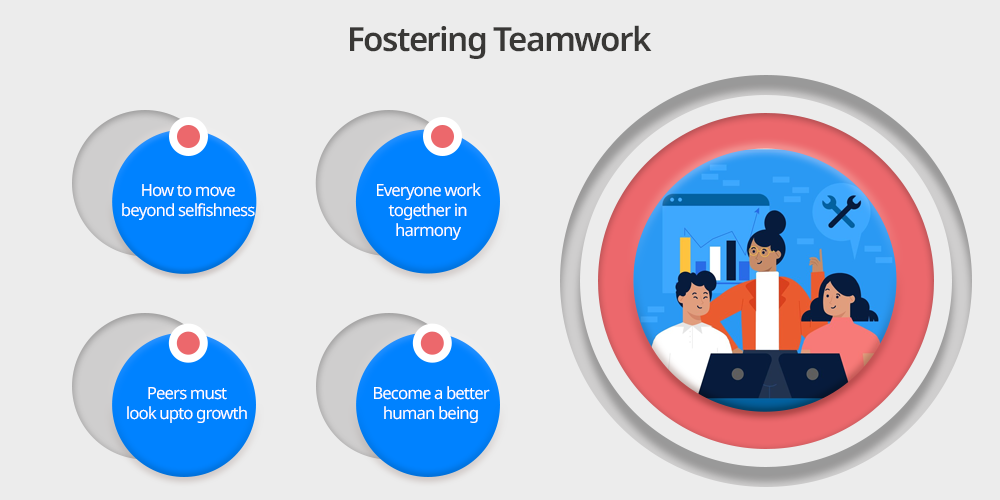
Competition is good but knowing how to move beyond selfishness and still trying to be the best is what every child must aim for.
It is always the work of an exemplary teacher who takes all along and makes everyone work together in harmony.
While striving to be the best is important, teamwork always teaches that peers must look upto growth for everyone who is in the journey of a healthy competition.
Empathy is a must if the goal is to become a better human being more than a student with good grades.
Principle 3: Boosting Active Learning Process
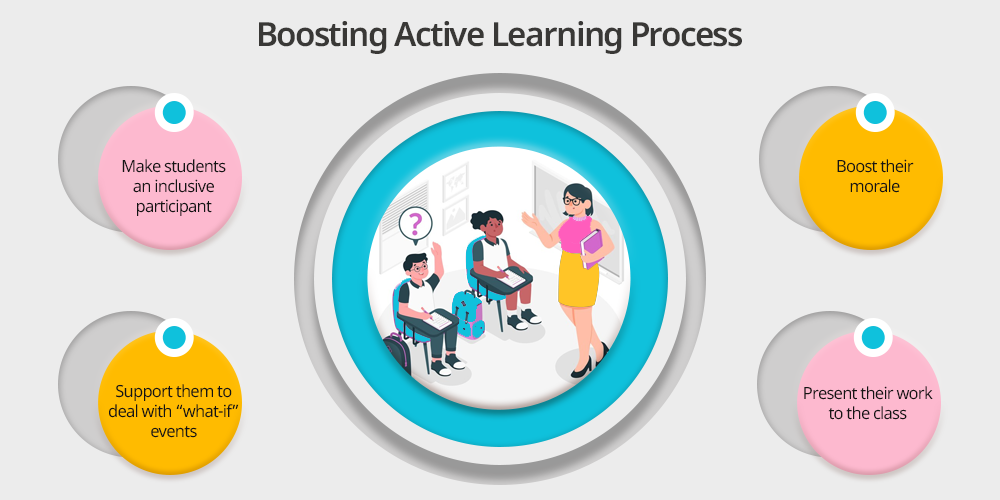
Students mostly serve out as passive listeners where teachers go on with their teaching. Active learning is a way to make students an inclusive participant in performing more than simply witnessing
By boosting their morale and supporting them to deal with “what-if” events, their thinking powers will find a new direction.
Presenting their work to the class and role modelling are other ways to bring out the “active performer” in them.
Principle 4: Prompt Review
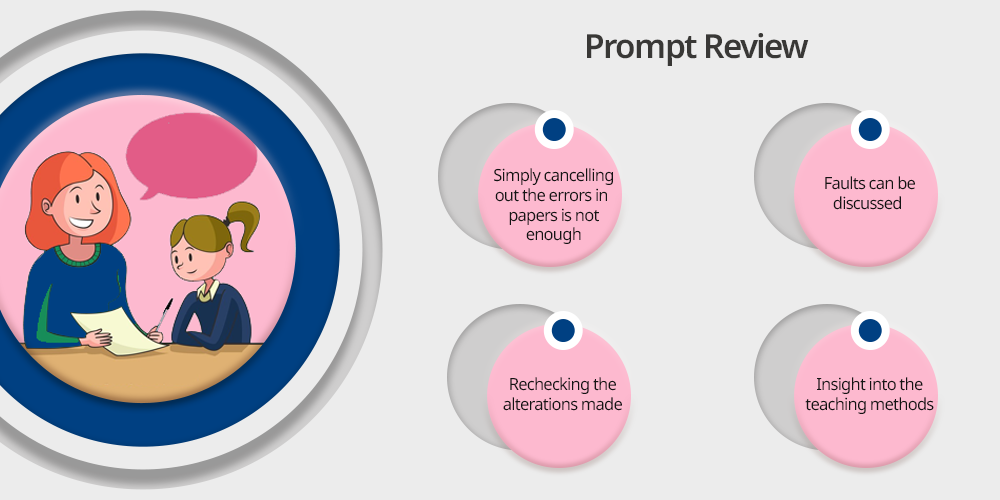
Students can only invest in more effort when teachers relay them if the work they did so far is worthy.
Simply cancelling out the errors in exam papers or assignments is not enough and therefore, by making an effort to have a session where these faults can be discussed is the need of the hour.
Rechecking the alterations made following a review class is the final step in having feedback that is complete by all means.
Additionally, when all the students are asked to write down a summary of all the things that were taught, the teacher will have enough insight into the teaching methods and student’s response.
Principle 5: Managing Time Well
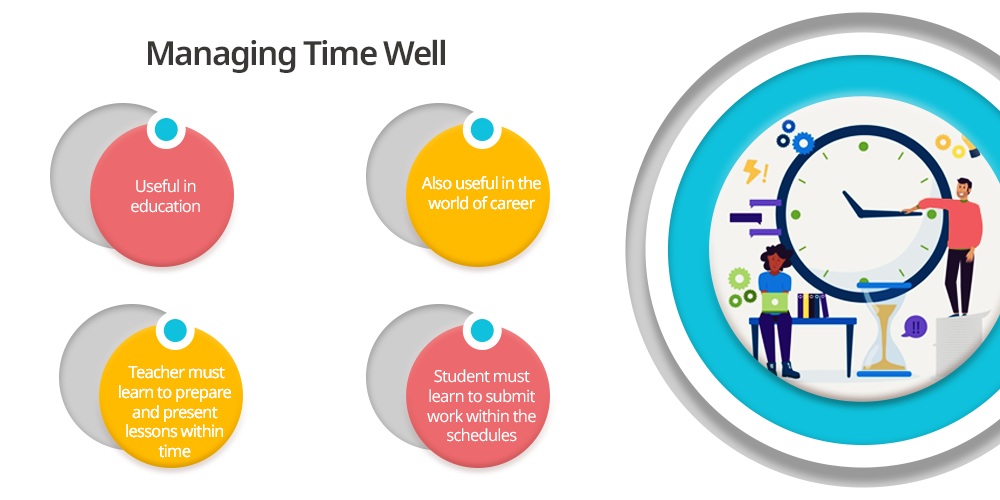
Time management skills apply to each human being as it is useful in education as well as in the world of career. Teachers as well as pupils must be more realistic while trying to set time limits.
A teacher should learn to prepare and present lessons within time and a student equally must learn to submit work within the schedules.
Therefore, the significance that time management holds is beyond limits and therefore each one must try to perfect it out.
Also read: How can Students Improve Time Management Skills
Principle 6: Boosting Student Morale
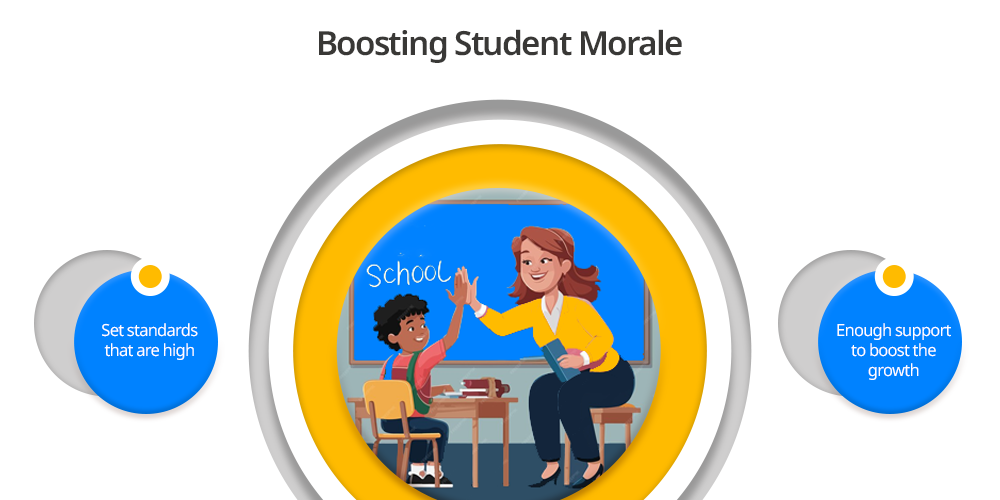
No matter the grades each student brings, it is always better to set standards that are high enough. Teachers must always give enough support to boost the growth and make them do better than before.
By letting them push harder to stay at the top, teachers will have students realise that dreaming big has all the time better rewards to deliver.
Principle 7: Introducing Varied Learning Styles and Respecting Diverse Talents
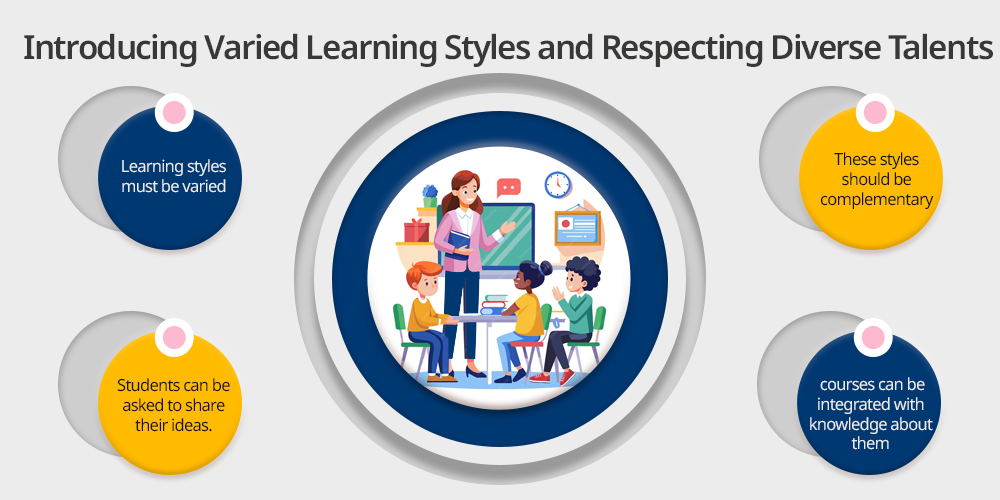
Learning styles must be varied so that various students find it easy to adapt. These styles should be complementary that bring newness in activities that are taken up.
Also, students who are separate from the majority in terms of culture, race can be asked to share their ideas.
To provide the rest of the crowd with more information on the minorities, courses can be integrated with knowledge about them.
Also Read about: Role of Schools in Nurturing Cultural Awareness
Conclusion
The principles of a teacher helps to realise that teaching is beyond simply churning out answers and giving lessons.
It is more in terms of having a relationship that students can look up to and seek guidance when the time calls for it.
Following these 7 principles while teaching is a good way to help a student fare better beyond studies and the happiness and contentment that a teacher will feel is beyond definition.
Overall, these 7 guidelines are a reminder that if teachers want, they can make a student’s life way better through some actionable steps and goodwill.

